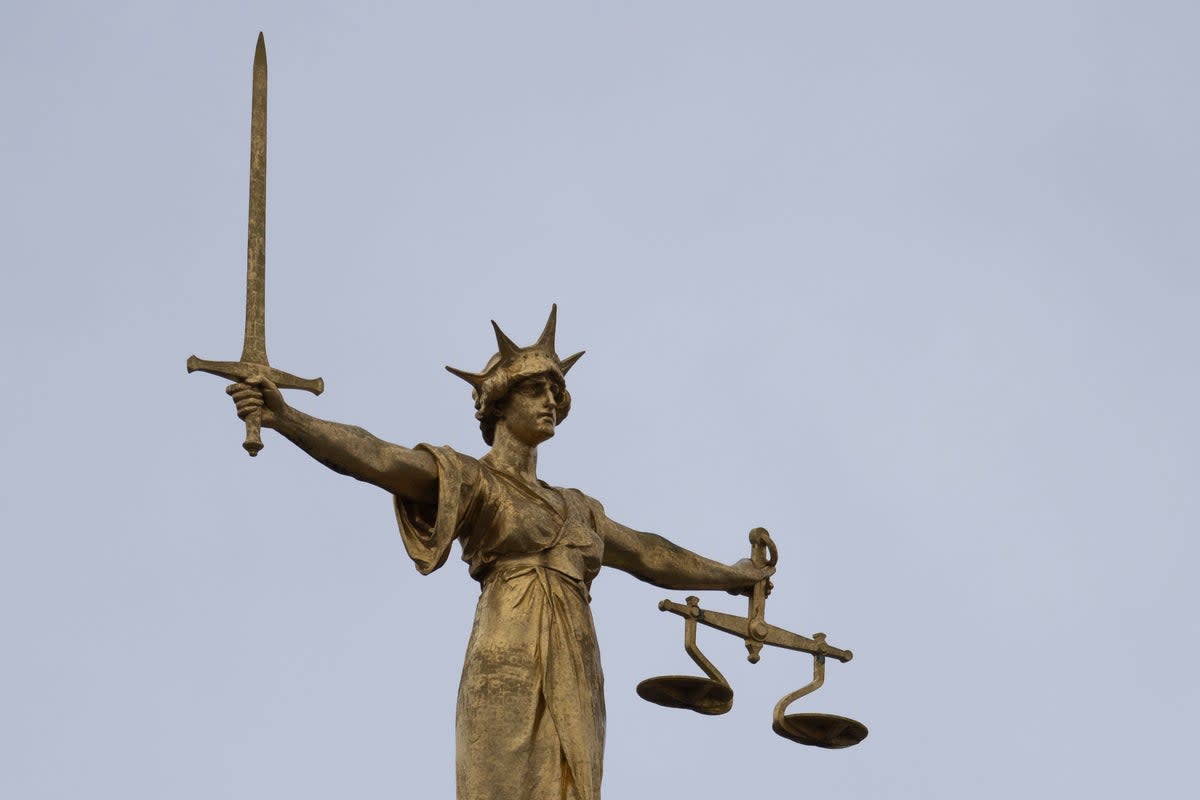Voices: TV in British courtrooms will make justice for women impossible

- Oops!Something went wrong.Please try again later.
In 1989, the House of Lords began allowing cameras to record their proceedings.
Thirty years on, how often do you watch Prime Minister’s Questions all the way through, rather than catching up on soundbites in the news and social media? Does watching the House of Commons circus increase your confidence in our government?
For the vast majority of us, the answers are probably never, and absolutely not. So why do we think televising court proceedings will be any different?
Proponents of the new ruling, such as the deputy prime minister and secretary of state for justice, Dominic Raab, have argued that allowing TV cameras in court will increase confidence in the justice system, and help the public understand the complex decision judges make.
Whether this is even necessary is questionable. A 2013 report from the Ministry of Justice found that public opinion on the criminal justice system had been relatively stable since 2003, and skewed towards the positive. How much this opinion even affects the function of the criminal justice system can’t be agreed upon; the report also found that attitudes towards the police, and a belief that the court was too lenient, was a more powerful predictor of cooperation with legal authorities.
In today’s world of 15-second social media stories and breaking news channels, our attention span is ever-diminishing, and the time we spend digesting our news is constantly decreasing. It is unlikely the introduction of cameras into criminal courts won’t be affected by this phenomena. Complex and lengthy trials will be turned into pithy snippets and cruel memes – all the while giving people the false impression they are well-informed.
We’ve already seen this play out in real time. Almost anyone with a social media account found their feeds inundated with highly selective, edited clips from the Amber Heard v Johnny Depp defamation trial earlier this year. According to The Washington Post, "The hashtag #justiceforjohnnydepp has received nearly 7 billion views across TikTok, and weeks later, still regularly trends on Twitter with hashtags like #JohnnyDeppWon and #AmberHeardIsALiar.”
Whilst the jury was instructed not to pay attention to social media, they were not sequestered (as you might believe is standard) and were free to go home to watch television, browse those same social media feeds, and talk to their family and friends about what was going on.
One research firm found that the targeting of the Aquaman actor was “one of the worst cases of platform manipulation and flagrant abuse from a group of Twitter accounts” and that trolls had manipulated conversations and trends “while targeting and abusing women to suppress any positive tweets supporting Amber Heard.”
One academic who supported Heard was targeted by trolls who used pictures of her dead child, and doxxed her family members.
If you hadn’t looked deeply into the case, you wouldn’t think that both Johnny Depp and Amber Heard were found guilty of defamation, and ordered to pay multimillion-dollar settlements. Television coverage of courts is not about promoting the criminal justice system, it’s about weaponising public opinion. More often than not, the victims are going to be women, and other minorities.
The confusing verdict offered in the Johnny Depp/Amber Heard trial – that somehow Heard lied about being abused, but that Depp claiming she lied was also a lie – is a testament to how social media campaigns that wouldn’t be possible without the presence of TV cameras can obliterate any sense of justice.
In America, where cameras have been allowed in courts since 1935, many states have since moved to restrict the rights of television and news crews after two major criminal convictions were overturned by the Supreme Court because the presence of cameras had infringed upon the defendant’s right to a fair trial. One of those released is suspected of murdering his wife.
Today, the first televised sentencing saw 25-year-old Ben Oliver sentenced to a minimum of 10 years in prison for the stabbing death of his 74-year-old grandfather in London last year. Oliver, who struggled with severe mental health problems but had issues accessing support, killed his grandfather after learning he had been accused of historic abuse.
To keep up to speed with all the latest opinions and comment, sign up to our free weekly Voices Dispatches newsletter by clicking here
The judge commented: “Your mother told you that she would not have peace until your grandfather was dead, you also knew how unhappy he had made your grandmother,” and “You did not think that there was an alternative to killing your granddad.”
He was cleared of murder by a jury after admitting to manslaughter on grounds of diminished responsibility.
The case of Ben Oliver is a tragic and complex one, mired by abuse and untreated mental health problems, which has likely caused his family indescribable pain. So has broadcasting their trauma for the public on television shed light on these important topics, or convinced people that the justice system is complex but fair?
Social media would suggest otherwise. Comments on Facebook include “this is crack cocaine for nosey people lol”, “families like these are why we need to bring back the death penalty”, “this is why we need the return of capital punishment”, and “pathetic sentence shame on you judge”.
Twitter isn’t much better. “Is it just me or does anyone else think Ben Oliver’s mother sounds like a right evil cow?” one anonymous account complained. Another griped: “Well this is boring. Cannot see the criminal.”
So much for education and understanding.

